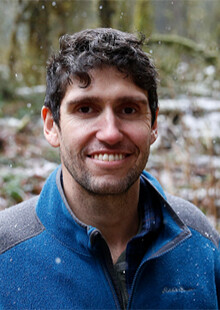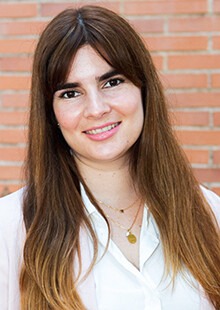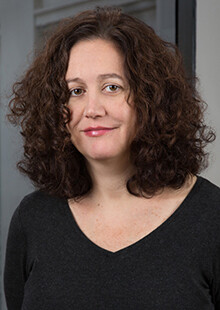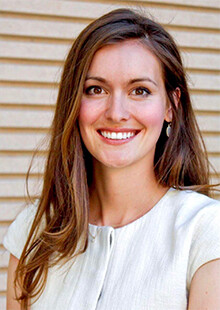LEAP Announces Fall 2023 Speaker Series

The Law, Ethics & Animals Program (LEAP) at Yale Law School has announced its fall 2023 speaker series. The series begins on Sept. 21 with a book talk by Dr. Raffael Fasel and Dr. Sean Butler, who will discuss their new volume, Animal Rights Law. Other events this fall will examine how human roadways impact wildlife and ecosystems, the rights of nature and rights of animals, and the zoonotic disease risk posed by animal markets in the United States. Register for these events below.
Animal Rights Law: A Book Discussion With Raffael Fasel and Sean Butler
Sept. 21 at 12:15 - 1:15 pm ET
Location: Online via Zoom, open to the public
Register (virtual event)


Do animals have legal rights? Recent court cases — from Happy the elephant in the United States to Estrellita the woolly monkey in Ecuador — have put deep questions about the ways in which animals are (not) protected by the law squarely in the public eye. A new textbook, Animal Rights Law (Bloomsbury, 2023) tells readers about this emerging field. Based on a popular course of the authors at the University of Cambridge, the book takes the reader from the earliest anti-cruelty laws to modern animal welfare laws, to recent attempts to grant basic rights and personhood to animals. To help readers understand this legal evolution, authors Raffael Fasel and Sean Butler explain the ethics, legal theory, and social issues behind animal rights and connected topics such as property, subjecthood, dignity, and human rights. In this talk, moderated by LEAP Student Fellow Thomas Poston, Fasel and Butler will discuss their new volume as well as the current state and potential future of this developing legal field.
Fasel is Yates Glazebrook Fellow and College Lecturer in Law at Jesus College, Cambridge, and Affiliated Lecturer at the Cambridge Law Faculty. He was previously Fellow in Law at the London School of Economics and was awarded a four-year research grant by the Swiss National Science Foundation. He obtained a Bachelor and Master of Law degree from the University of Fribourg, an M.A. in Philosophy from University College London, an LL.M. from Yale Law School, and a Ph.D. in Law from the University of Cambridge, for which he was awarded the Yorke Prize. He is the author of More Equal Than Others: Humans and the Rights of Other Animals and the co-author of Animals and the Constitution: Towards Sentience-based Constitutionalism (both forthcoming with Oxford University Press). His research has been published or is forthcoming in leading scientific journals such as the Oxford Journal of Legal Studies, the International Journal of Constitutional Law, and The American Journal of Jurisprudence, as well as in periodicals with a wider readership such as the Times Literary Supplement.
Butler has been a Fellow of St Edmund’s College, Cambridge for some 20 years, where he has taught Roman law, intellectual property law, and animal rights law. He is also an Affiliated Lecturer in the Faculty of Law at Cambridge, where he lectures in animal rights law. He studied law at the University of Oxford (St Edmund Hall) and the London School of Economics and Political Science as well as Genetics at Cambridge, before taking his Ph.D. in social science at Imperial College, London. With Dr. Raffael Fasel he co-founded the Cambridge Centre for Animal Rights Law and co-authored the textbook Animal Rights Law (Hart Publishing 2023). He has published books, articles, and book reviews, and is currently co-editing a special issue of the journal Animals on the topic of animal rights law. His primary research interest is animal rights law, which he wants to develop into a widely-taught subject around the world.
This event is co-sponsored with the Yale Animal Ethics Study Group, the Yale Animal Law Society, Yale Environmental Humanities, and the Yale Environmental Law Association.
Crossings: How Road Ecology is Shaping the Future of Our Planet: A Book Talk with Ben Goldfarb
Tuesday, October 17 at 12:15 - 1:15 pm ET
Location: Online via Zoom, open to the public
Register (virtual event)

Approximately 40 million miles of roadways encircle the earth, but humans tend to regard them only as infrastructure for our convenience. Yet roads have far-reaching — and deadly — consequences for the nonhuman world: one million animals are killed by cars each day in the U.S. alone. Roadways also fragment wildlife populations into inbred clusters, disrupt migration for creatures from antelope to salmon, allow invasive plants to spread, and even bend the arc of evolution itself. In this talk, moderated by LEAP Student Fellow Nathalie Sommer, environmental journalist Ben Goldfarb M.E.M. ’13 will discuss his new book, Crossings: How Road Ecology Is Shaping The Future of Our Planet. He will explore how roads have transformed our planet and the innovative solutions offered by road ecologists to address the existential threat roadways pose to many animal species.
Goldfarb is an independent conservation journalist and the author of Eager: The Surprising, Secret Life of Beavers and Why They Matter, winner of the 2019 PEN/E.O. Wilson Literary Science Writing Award. His latest book, Crossings, has been supported by grants from the Alicia Patterson Foundation and the Whiting Foundation. His writing has appeared in numerous publications, including The Atlantic, Science, The New York Times, The Washington Post, National Geographic, Yale Environment 360, and many more. He holds a Masters of Environmental Management from the Yale School of Forestry and Environmental Studies and a Bachelor of Arts from Amherst College.
This event is co-sponsored with New York University’s Wild Animal Welfare Program, the Poynter Fellowship in Journalism at Yale, the Yale Animal Ethics Study Group, the Yale Animal Law Society, Yale Environmental Humanities, the Yale Environmental Law Association, and the Yale Journalism Initiative.
Rights of Nature and Rights of Animals with Kristen Stilt and Macarena Montes Franceschini
Nov. 2 at 12:15 - 1:15 pm ET
Location: Yale Law School, Sterling Law Building, Room 121
Register (in-person event)
Lunch will be provided


The concept of rights has its skeptics. So does the concept of animal rights and perhaps even more so the rights of nature. What happens when these rights-based arguments are combined with indigenous world views to attempt to secure the basic interests and needs of one individual animal, a community of animals, or a species of animals? Is the result a stew of legal incomprehensibility? Or an ingenious and effective argument? Or something in between? In this talk, moderated by LEAP Student Fellow Eui Young Kim, Harvard Law School’s Kristen Stilt and Macarena Montes Franceschini will sort out these questions and offer their views, using examples from Ecuador, Panama, Brazil, Argentina, Turkey, and others.
Stilt is Professor of Law, Faculty Director of the Brooks McCormick Jr. Animal Law & Policy Program, and Faculty Director of the Program on Law and Society in the Muslim World at Harvard Law School. She was named a Carnegie Scholar for her work on constitutional Islam, was awarded a John Simon Guggenheim Memorial Foundation Fellowship, and was a Fellow at the Radcliffe Institute at Harvard in 2020-2021. Stilt received a J.D. from The University of Texas School of Law and holds a Ph.D. in History and Middle Eastern Studies from Harvard University. Recent publications include Animal Markets and Zoonotic Disease in the United States (2023), a joint report of the Brooks McCormick Jr. Animal Law & Policy Program at Harvard and the Center for Environmental and Animal Protection at New York University, and “Rights of Nature, Rights of Animals,” in the Harvard Law Review Forum (2021). She is currently working on a these projects: a book about the global animal agriculture industry to be published by Oxford University Press the Oxford Handbook of Global Animal Law with co-editors Anne Peters and Saskia Stucki, also under contract with OUP; an Animal Law and Policy casebook with Justin Marceau; and an article on rights of nature and animal rights with Macarena Montes.
Montes Franceschini holds a Ph.D. in Law from Universitat Pompeu Fabra (Barcelona) and is now a Visiting Fellow with the Brooks McCormick Jr. Animal Law & Policy Program at Harvard Law School. She has been a visiting researcher at Max Planck Institute for Comparative Public Law and International Law in Heidelberg and was previously a Rights Research Fellow with Harvard Law School’s Animal Law & Policy Program. She is also a board member of the UPF-Centre for Animal Ethics, editor of the journal Law, Ethics and Philosophy (LEAP), a member of the Editorial Committee of the Chilean Journal of Animal Law, and the treasurer of the Great Ape Project – Spain. She has written several articles on nonhuman animal personhood, animal rights, and animal law and a book titled Animal Law in Chile.
In 2021, Kristen and Macarena co-authored an amicus curiae brief with the Nonhuman Rights Project in a case before the Constitutional Court of Ecuador known as the “Estrellita Monkey Case.” They argued that the rights of nature provided for in the country’s constitution should apply to individual animals. The Constitutional Court adopted their arguments and cited them extensively in its decision, issued Jan. 27, 2022.
This event is co-sponsored with the Yale Animal Ethics Study Group, the Yale Animal Law Society, Yale Environmental Humanities, the Yale Environmental Law Association.
Animal Markets and Zoonotic Disease Risk in the United States with Ann Linder
Nov. 16 at 12:15 - 1:15 pm ET
Location: Yale Law School, Sterling Law Building, Room 121
Register (in-person event)
Lunch will be provided

The possibility that COVID-19 first infected humans at a live animal market in Wuhan, China inspired calls for countries to close these “wet markets” to mitigate zoonotic disease risk. Many calls focused on countries in Asia, but these markets operate inside the United States as well. This country is home to an extensive network of animal industries and practices that drive zoonotic disease emergence. The U.S. is the world’s largest importer of both domesticated animals and wildlife and is one of the world’s leading producers of livestock and captive wildlife. Yet according to a sweeping new report by Harvard Law School and New York University, Animal Markets and Zoonotic Disease in the United States, the U.S. has no comprehensive strategy to mitigate zoonotic disease risk from these practices. In this talk, moderated by LEAP Executive Director Viveca Morris, the report’s lead author Ann Linder will discuss the myriad forms of animal markets in the U.S. and the policymaking needed to address the risk they pose to human and nonhuman health alike.
Ann Linder is Associate Director of Policy & Research and Wildlife and Live Animal Markets Fellow with the Brooks McCormick Jr. Animal Law & Policy Program at Harvard Law School. Much of her work focuses on the intersection of animal law and criminal law, including wildlife trafficking. Prior to Harvard, she worked as a wildlife policy analyst for the Cummings School of Veterinary Medicine at Tufts University focusing on applications of immunocontraceptive vaccines in free-roaming horses and cervids. She also spent time working with the Animal Protection Unit for the City of Austin, Texas after serving as a Legislative Policy Fellow for the Harvard Animal Law & Policy Program in 2018. Her work has been published by Harvard Law School, Stanford Law School, and Lewis and Clark Law School, as well as the New York Bar Association. She received her JD from Stanford Law School and holds a Master's of Science in Animals and Public Policy from Tufts University.
This event is co-sponsored with the Yale Animal Ethics Study Group, the Yale Animal Law Society, and the Yale Environmental Law Association.


